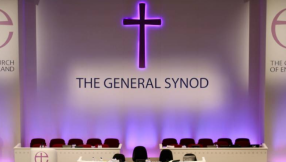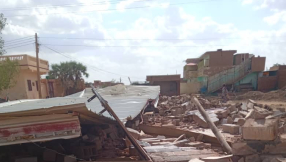Australia Defends Tough Anti-Terror Stance Over Medic
Australian Federal Police charged Indian doctor Mohamed Haneef, 27, on Saturday with recklessly providing support to a terrorist organisation, after holding him since July 2.
Another doctor, Sabeel Ahmed, 26, who is Haneef's cousin, was charged in London on Saturday with failing to disclose information that could have prevented the attacks.
Prime Minister John Howard said the terrorism laws, introduced in 2004, were necessary "to the very last letter," and opened the door to possibly strengthening them.
"I believe that the present laws are all necessary, I have an open mind as to whether they might need to be strengthened in the future," Howard told Australian Broadcasting Corp. (ABC) radio.
Civil rights groups had protested over Haneef's detention without charge.
Police investigating the case at the weekend said they had had to sift through the equivalent of 36,000 four-drawer filing cabinets of material in electronic form.
Haneef was remanded in custody until Monday when his bail application is to be heard in a Brisbane court. Police say he provided the group with his mobile phone SIM card, which one of the suspects used later.
Haneef's lawyer, Peter Russo, said Haneef was being treated unfairly under the tough laws because people charged with terrorism offences could only be granted bail in "exceptional circumstances," Australian Associated Press reported.
"The trouble is, he's being dealt with as if he's been charged with the most serious charge a person can be charged with under the legislation," Russo was quoted as saying.
PERTH RAIDS
In a related development, local media reported that police in Perth, the Western Australian state capital, had raided a suburban house in connection with the investigation of links between foreign-trained doctors and the British bomb plots.
ABC reported that police on Sunday morning completed the search of the house where three or four Indian doctors lived and were starting to examine the evidence they had seized, to determine whether any charges would be laid.
Police began searching the townhouse on Saturday and removed several bags and boxes. Similar raids were made last week at Royal Perth Hospital and Kalgoorlie Hospital.
Australian Attorney-General Philip Ruddock declined to comment specifically on the Perth raids.
But he said the Australian Federal Police "have worked assiduously in relation to issues arising from the linkages with the UK bombings, and have put enormous amount of resources and time and effort into very professionally examining any possible links with Australia."
He described the anti-terror laws as "balanced and appropriate".
Ruddock said Haneef would not be extradited to Britain while he was facing charges in Australia.
"In relation to extradition, Australia would not normally surrender a person for extradition where there were outstanding matters that had to be dealt with here," Ruddock told Channel Ten's "Meet the Press" programme.
Two car bombs primed to explode in London's theatre and nightclub district were discovered early on June 29. The following day a jeep crashed into the terminal building at Glasgow airport and burst into flames.
All six suspects in Britain are doctors from the Middle East or India.
Haneef is a second cousin to Kafeel Ahmed, one of the suspects in the Glasgow attack who suffered severe burns and is now in a critical condition in hospital.













